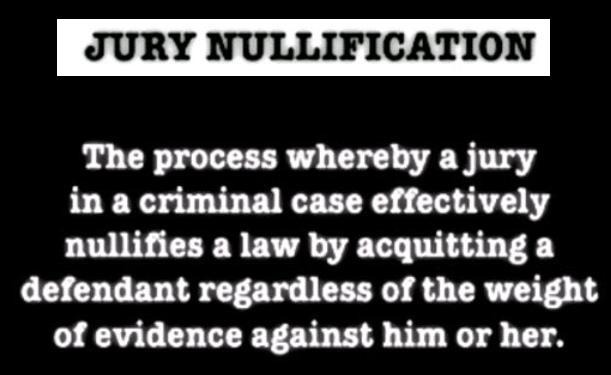(Akiit.com) The much-hyped surge of African Americans petered out in the first round of primaries. But black GOPers aren’t giving up…
This was supposed to be ”the year of the black Republican.” Google the phrase and you’ll get more than 20,000 results, most of them ending with a question mark. Prompted largely by a May 10 New York Times article, ”Black Hopefuls Pick This Year in GOP Races,” media outlets pounced on the Great African-American Republican Narrative of 2010. Chock-full of Tea Parties and history (”the most black GOP candidates since Reconstruction”), the story was not only eminently discussable, it was also a perfect platform on which to stack another favorite talking point: the Obama effect. Despite very different political views, black Republicans were inspired by Barack Obama’s victory and were now throwing their own black hats into the ring.
Conservatives, especially, welcomed the news, heralding more than 30 black Republicans running for Congress as proof that the right isn’t racist. ”[This] shows that conservatives have no barriers to entry except on policy and philosophy,” wrote Ed Morrissey on Hot Air.
But then came the primaries. In Alabama, Les Phillip, who made waves with ads saying President Obama ”played with terrorists,” got crushed by both his white opponents. Even white incumbent Parker Griffith, a former Democrat who switched parties last year, beat Phillip by 17 points. Baptist minister Jerry Grimes lost in North Carolina’s 1st district, and Lou Huddleston, who won a Cumberland County North Carolina Republican Party straw poll in February, got walloped in the 8th district. Despite his years of service as an aide to Colin Powell, Huddleston proved no match for Tim D’Annunzio, a businessman who raised money with ”machine gun socials.” (For $25, supporters got a plate of barbecue and the opportunity to shoot an Uzi.) In Mississippi, Fox News analyst Angela McGlowan, endorsed by none other than the Sarah Palin, lost to both her competitors, catching only 15 percent of the vote.
There are still dozens more primary elections to come, but, so far, it seems voters in the South are less excited than the news media about 2010’s crop of black conservative candidates.
”It’s not surprising that voters didn’t support them,” says Valeria Sinclair-Chapman, a professor at the Center for the Study of African American Politics at the University of Rochester. ”Historically, for white and black Southerners, they’ve been groomed to see a racial difference, particularly in party politics. Perhaps those lines have been so starkly drawn because of the Southern strategy that came out of the 1960s and was really put into full swing in the 1980s.”
That strategy, popularized by Nixon aide Kevin Phillips in his 1969 book, The Emerging Republican Majority, practically ensured GOP victories in the South by courting Democrats unhappy with their party’s embrace of blacks and women. That wedge has been planted firmly for decades now, and it still looms over any black Republican’s campaign, especially in the South.
Try telling that to Princella Smith. A 26-year-old Hill staffer, Smith lost by more than 50 points in Arkansas’ 1st district on May 18. In the months before the primary, she’d drawn national hype, even earning an endorsement from her old boss, Newt Gingrich. It wasn’t enough.
Nevertheless, Smith believes it was her poor campaigning, not Arkansas’s racial dynamics, that most contributed to her loss. ”I know everybody really wants to say it’s because they’re black and they can’t win the Republican Party,” she says, speaking of herself and the other defeated black Republicans. ”That’s not true. I can’t speak for everybody else, but in my instance, I came out of a job in D.C. and gave myself three months to run for office. Unless you’re extremely well-funded and have a great organization, that’s hard.”
Smith will concede that perhaps some voters shunned her for her race, but she says the Arkansas press, which she claims is unwilling to cover most political candidates, probably hurt her chances more. ”I’m not saying there weren’t some people who might have gone to the polls and said I’m not voting for the black girl,” she says. ”But most people didn’t know me. We were out campaigning that last week and a half and people hadn’t heard of me.”
”I think we obviously have a way to go before we’re really competitive,” says Timothy F. Johnson, chairman of the Frederick Douglass Foundation, a black conservative group. ”With a lot of these candidates, their hearts are in the right place, but they really don’t understand what it takes to run a successful campaign.”
Like Smith, Johnson doesn’t see race as the main reason black Republicans are falling left and right. Instead, he thinks many of them, while talented leaders, are young, inexperienced and fighting uphill battles against a history that says they shouldn’t exist. ”Let me tell you this, blacks in the Republican Party are starting off at negative,” he says. ”Not zero, negative. When you think about it, we’ve just got to get to zero at this point.”
Johnson, who is also vice chairman of the North Carolina Republican Party, says the key to making up that ground is to assess black Republican losses–he acknowledges there will be many–after the general election and rebuilding. ”I’m more curious about what we do after November,” he says. ”We need to take time to figure out where we can improve and who are those individuals who are willing to move forward with this.”
Princella Smith has vowed to take the next step. And in Texas’ 30th district, a relatively unknown pastor named Stephen Broden is through the primary and headed toward the general election, thus proving that all black Republicans aren’t toppling. Accompanying those two almost surely will be Vernon Parker in Arizona, Allen West in Florida and Ryan Frazier in Colorado, three ballyhooed black Republicans who have yet to face primaries.
Still, common moxie can only go so far, and some of the GOP’s recent dealings with fringe elements are exacerbating an already tenuous situation for African-American conservatives, says Sinclair-Chapman. ”I think the Republican Party has created some alliances that won’t work to their favor for blacks,” she says. ”I think black Republicans credibly running for office could have happened [in 2010]–what with Obama and Michael Steele in office. But in the last year, the Republican Party has hung its fortunes on things like the Tea Party movement, with the pictures of Barack Obama as the Joker and the racist placards. I think all of that has created a perception of pure intolerance. So when black Republicans are running for office, they’re not viewed credibly by blacks or whites.”
Written By Cord Jefferson










Leave a Reply